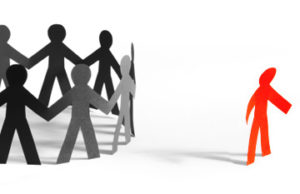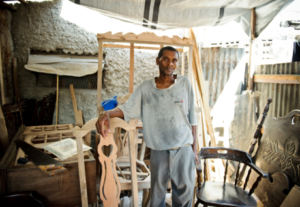 Over three million people, including 200,000 older people were affected by the Haiti earthquake of 12 January 2010.
Over three million people, including 200,000 older people were affected by the Haiti earthquake of 12 January 2010.
Since the earthquake, HelpAge has provided 25,000 older people and their families with food, cash, essential basic items, shelter and mobility aids. We have also distributed ToughStuff kits, which contain solar-powered radios and lamps.
However, two years later and despite the huge efforts of various actors, the lives of thousands of older Haitians have not improved. Older people still face discrimination and remain largely excluded from the relief work.
Judith Larivière, Country Director of HelpAge International in Haiti, said: “Open discrimination against older people in Haiti is rife. They are just not considered as an important part of society. There is a consensus that they have lived their lives and that others must come first.”
Older people excluded from resettlement projects
Older people affected by the earthquake still have pressing needs, including housing and food. Currently, older people only automatically benefit from housing assistance when they live with adult children who are eligible. This means that older people who are alone or who live with and care for dependent grandchildren are overlooked for new building projects.
However, HelpAge’s community workers have managed to support 1,080 older people to help them get temporary shelters. The housing needs of 13,000 older people have also been registered and passed on to temporary housing agencies.
In a Disasters Emergency Committee (DEC) evaluation of HelpAge’s work in Haiti, 50% of older people surveyed spent nearly two days without eating. Some older people who have received cash transfers from HelpAge use the money to buy food. However, this is not sufficient and they are often unable to afford three meals a day.
Older Haitians demand their rights
To support older people’s needs and provide training, we have also set up 88 older people’s associations. Gilbert, a 66-year-old

carpenter and member of his local older people’s association, said: “There is a feeling at the moment that older people should be set aside because they have failed their country and it’s time to let the younger generation lead.
“Old age is still the root of the tree and the branches cannot grow if the root is not sturdy. I still believe that older people can be very useful.”
Through the support of these associations, thousands of older people are fighting discrimination and demanding their rights. As part of our global grassroots campaign, Age Demands Action, 6,500 older people joined local marches to lobby their government and ensure older people’s needs were included in the emergency and relief response.
On 1 October 2011, the UN International Day of Older Persons, Haiti’s First Lady, Sophia Martelly, met 55 older people aged 65-110 at the National Palace and pledged her support for the campaign.
She said: “One thing that bothers me a lot is that we focus too much on youth. They say that the youth is the future of the country. But we always forget that the seniors are the memory.
“The past is important because it allows us to go forward. I formally request public institutions and people of goodwill to ensure that the lives of seniors improve.”
Much remains to be done
Older people are one of the most vulnerable groups in disasters. On top on this a lack of planning, as well as aid agencies’ limited awareness of older people’s specific needs, means that they are often left out of relief efforts.
“Older people feel isolated and marginalised. Some are victims of abuse, often due to their physical weakness and poor living conditions, and it is hard for them to find help. Two years on we cannot continue to let older people’s rights be ignored,” said Judith Larivière.
In 2012, HelpAge will continue its work to support older people and their families affected by the earthquake.
Our key efforts will be:
-
Helping the most vulnerable older people leave the camps and resettle them with host families.
-
Continuing to secure incomes for older people by supporting older people’s associations.
-
Training members of older people’s associations on psychosocial care, nutrition and how to control and prevent chronic diseases.
-
Working through older people’s associations to ensure that older people are better supported during future emergency responses and recovery situations.